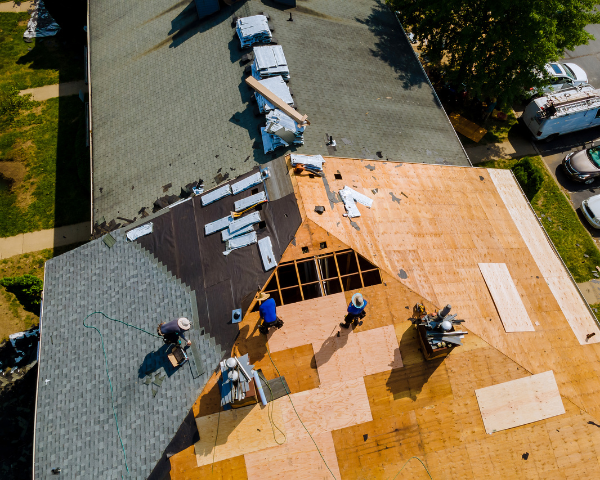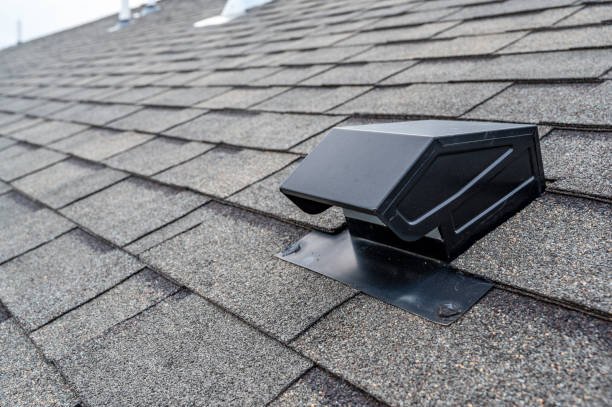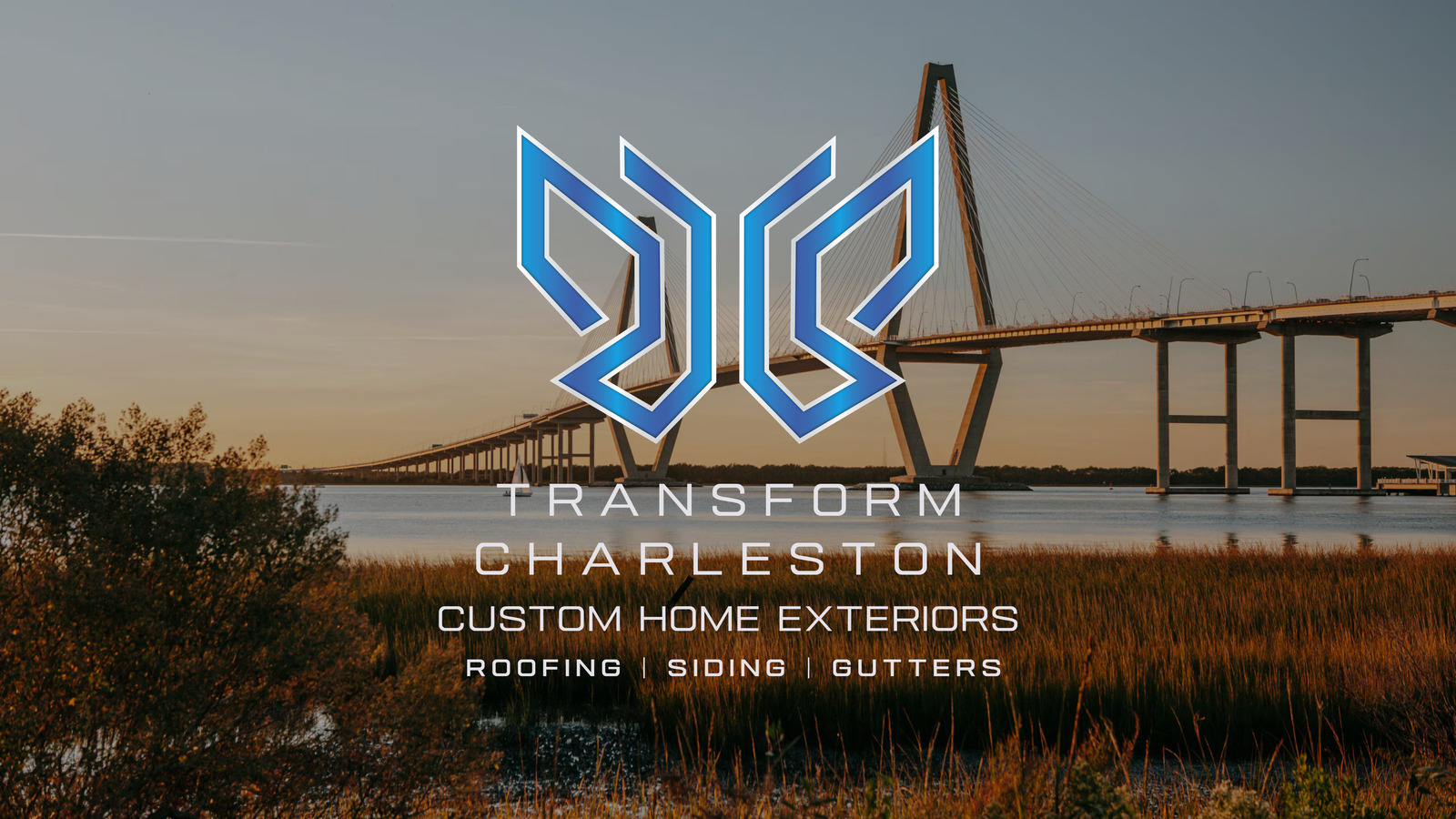In the roofing and siding industry today, there are many contractors in business to solely pursue revenue, and therefore, do not always conduct business ethically. In spite of the local building codes set forth for them, easily to be read about and found online, they either don‘t care to follow them, don’t take the time to read through and learn them, or sadly don’t even know what the codes are. There are over 300+ building code requirements and manufacturer installation specifications that must be followed for the average roof or siding replacement project. According to Aris Home Inspections, a roofing inspection company, found that 90% of all roofs do not qualify for the manufacturers’ long term product warranty. They found this is mainly due to improper installation, improper ventilation, and inadequate maintenance. That means that of the 5 million residential re-roofing projects that happen every year, 4.5 million homeowners are left without their manufacturer’s warranty and unfortunately they just don’t know it until it’s too late. The same kind of issues can be seen in the siding world as well. When homeowners attempt to make a warranty claim due to a manufacturer related defect, the majority get a denial as it is actually failing due to improper installation. This is why it is of the most importance to choose the right contractor to take on your home’s exterior project, as choosing the wrong contractor is much more costly than paying for the right one. We will examine what the true costs are related to choosing the wrong contractor for a home exterior project. There is a saying in the trades industry, “If you think the price is too costly to go with a true professional, wait until the bill comes for choosing the wrong contractor.” According to Warren Buffett, “Price is what you pay, value is what you get.”
What Is The Cost Of Choosing Inferior Materials and Poor Workmanship?
When it comes to your project, the most important thing to consider is whether or not the contractor has installation competence for your project. The second is choosing the right materials for your job and confirming those materials are best for your climate and market. For example, in our local coastal market here in Charleston, we have to consider the salt in the air, as we are located near the Atlantic Ocean. Unfortunately, a majority of the metal roofs that are put on homes here in Charleston are made of Galvalume Metal. Galvalume metal will rust and prematurely fail if put on a home within 2000 feet near the ocean, or on a home located near a salt breeze area. So, those who are paying top dollar for their standing seam galvalume metal roof most likely aren’t aware that the material being used isn’t optimal in the area where the salt concentration is high. Therefore, they are misled into believing they have a 50 year roof, but in all actuality, the roof may last 15 or so years before it begins to heavily rust out and corrode. The correct material to use for a metal roof in a coastal climate is aluminium, mixed with specific alloys, as it does not rust out as quickly with the salt. Another factor that impacts the Charleston area is a high concentration of heat and humidity. This climate causes concern for mold growth, as well as algae growing on the shingles. The algae that grows on a roof can be seen as the black streaking and this is a major problem for a majority of homeowners within the first 10 years of their roof. The ideal shingle for this market is one that contains a high concentration of copper granules, which helps create an environment that prevents algae growth. Among the available options, only Atlas shingles offer a copper concentration of at least 10%, making them the best choice for the job. You can read more on why this is the best shingle in our previous blog.
What Are The Hidden Costs Of Delays And Mistakes?
Upfront costs of a big project on your home can be overwhelming, especially when the project was unforeseen. As a homeowner, you may be tempted to go with the lowest bid. However, in the very unregulated home services contracting world, you get what you pay for, and a low bid usually means lower quality contractor and lower quality material. Delays and mistakes in home exterior projects can lead to an array of hidden costs that often catch homeowners by surprise. These include additional permit fees if the necessary paperwork is incomplete or incorrect, extended labor costs due to prolonged work hours, and the need for extra materials to replace wasted or damaged supplies. If delays render your home uninhabitable, you may then incur temporary living expenses. There’s also the potential for higher costs due to changes in project scope, unexpected structural modifications, and the added expense of post-project cleaning and restoration. Furthermore, storing materials for longer periods can result in storage fees, while missing project deadlines might lead to fines from homeowner associations. Delays in home improvement projects, particularly when dealing with a bad contractor, can accumulate. A typical tactic involves quoting a smaller scope of work and then informing the homeowner mid-project that additional work is necessary. One of the more common bad reviews left by homeowners are in relation to delays and increased project costs as labor extends beyond the intended timeframe. Exterior projects are heavily dependent on weather conditions, so a single-day delay can spiral into weeks and potentially lead to water damage. Being aware of these hidden costs can help you better plan and budget for your home exterior project, ensuring smoother execution and fewer financial surprises. Here is a great blog by Custom Built that goes through more hidden cost factors.
What are the risks of hiring an Unlicensed Contractor?
While unlicensed contractors may be a popular choice for many homeowners due to their cheaper project costs, hiring them comes with significant and often unforeseen risks. Unlicensed contractors are typically hired for two main reasons: their ability to offer very low bids and their status as family or friends with a reputation for performing work at a low cost. They are able to offer lower costs because they avoid the expenses associated with permits, insurance, brick and mortar building costs, and bonds—essential protections that safeguard homeowners from subpar or unfinished work. If an unlicensed contractor makes a mistake and causes damage, the homeowner will be responsible for covering the additional costs. Furthermore, if an accident occurs and a worker is injured on your property, you could be held liable for their legal fees, lost wages, and medical expenses. Homeowner protections, such as contractor license bonds and liability insurance, are not available with unlicensed contractors. A bond ensures that you are protected from damages during a remodel, requiring the contractor to adhere to specific regulations and safeguarding you from financial loss. Both the bond and the licensed contractor’s liability insurance are in place to protect you in cases where the work is subpar or incomplete. This protection ensures that the contractor is required to fix any construction mistakes, or at the very least, provide financial reimbursement, so you won’t have to pay another party to handle the repairs
This next section is taken from Remodelworks.com and does an excellent job on explaining the risk you take on by hiring a contractor who is unlicensed:
“It actually doesn’t even matter if you knew that the contractor was licensed or not when you hired them, as many homeowners are in the dark about the consequences of hiring an unlicensed contractor. You, the homeowners, and employer, carry the burden of determining whether a worker is licensed. This means you could be held liable whether you knew they were licensed or not. Many assume their homeowner’s insurance policy will cover them in an instance where an unlicensed contractor is injured on the job, however, this usually isn’t the case. Your homeowner’s insurance will not cover you in these cases, leaving you vulnerable to have to pay out of pocket. However, if you have a licensed contractor and one of their subcontractors are injured on the job, you will be protected by the contractor’s worker’s compensation insurance should that worker try to sue for damages. The best thing to do to protect yourself against this potentially financially crippling situation is to hire a contractor who holds the appropriate license to do the work you need to be performed. This way you will not unwittingly become an employer and the target of a costly personal injury lawsuit.”
Here is the entire article: Remodelworks
Is Hiring a Contractor Stressful?
Hiring the wrong contractor can lead to significant emotional and financial stress. Even with the best contractors, any project can be stressful, as it involves watching parts of your home being demolished and rebuilt. Delays are a normal part of the process, but projects become significantly more stressful when timelines are extended, as no homeowner wants their home to feel like an ongoing construction zone. Additionally, tracking down a contractor who has performed subpar work can be overwhelming. Getting them to return and fix the issues often requires persistent effort and can even lead to lengthy legal battles. Ultimately, you may end up hiring a reputable contractor to complete the job correctly, further adding to your frustration and expenses.
By thoroughly vetting and selecting a reliable contractor from the outset, you can save yourself from a significant amount of stress and minimize risks. Although the initial interview process may be cumbersome, long term it is much better than dealing with the consequences of not doing so. Look for contractors with verified licenses, strong references, and a solid reputation for completing projects on time and within budget. Investing in a high-quality contractor upfront can save you from the headache of future repairs and additional costs, ensuring that your home improvement project proceeds smoothly and efficiently. This proactive approach significantly reduces the stress typically associated with such endeavors. Here is a great article by the New York Times that talks all about the stress a bad contractor can bring and great tips to find good contractors.
How Does Hiring a Bad Contractor Cause Unnecessary Repairs?
Repair issues on previous projects can become a bigger problem than initially anticipated. For example, if you had new siding installed and need to repair parts of it within 10 years, it typically indicates that the siding was not installed correctly to begin with. For any exterior project like siding or roofing, the primary goal of proper installation is to ensure the new material is watertight. Poor installation often results in moisture infiltrating your home, leading to a cascade of problems. By the time you, as the homeowner, notice a leak, the water has likely spread from the entry point and is trapped within your walls. Once water has permeated your walls, those sections need to be extracted and replaced, which can become a very costly endeavor.
Long-term leaks almost inevitably lead to mold growth, which poses serious health risks to everyone in the home, including pets. Here is an exurb from News-medical.net that shares about the risk mold poses to your health.
What Are The Health Consequences of Improper Ventilation Causing Mold?
Humans tend to spend approximately 90% of their time indoors, therefore the high risk associated with the presence of fungal growth is especially pertinent. The presence of mold is associated with several health symptoms and can range from mild such as fatigue and reduction in concentration, escalating to cognitive impairment and adverse effects on the respiratory system. The most common of these effects include:
- Asthma
- Allergic rhinitis and sinusitis
- Allergic alveolitis
- Infections
- Sense of fatigue, reduced concentration, irritated nose eyes, and throat, rhinorrhea
- Rheumatic disease
One of the main reasons homeowners experience mold issues is improper ventilation in the attic. The attic space holds both heat and moisture, and these need a way to escape to maintain a healthy environment and prevent mold growth. Without proper ventilation, the heat and moisture become trapped, creating the ideal conditions for mold to thrive. Proper attic ventilation requires a careful calculation to determine the exact amount of ridge vent and soffit ventilation needed. This ensures the right balance of air intake and exhaust. If there is too much or too little intake, or inadequate outflow, the ventilation system won’t function properly. This imbalance can create the ideal environment for mold growth.
Another common cause of mold in a home is a long-term leak that either isn’t addressed properly or continues for an extended period. When water consistently enters a home over time, mold growth becomes inevitable, especially in a climate like Charleston’s. Most of the time where leaks occur are around flashings at wall junctions and penetrations such as chimneys, vent pipes or sky lights. If you choose the right contractor then issues around flashing a penetration or wall correctly should never be an issue. You should be told on the front end a detailed plan of how that contractor plans to flash, so that you don’t have leaks happening in the future. If the contractor doesn’t go into details about what seems insignificant, then they may not be the right person for the job. The right contractor will go into great detail on how they will do every step of the job, and leave no stone unturned so that you know exactly what is going to be done to your home. To read more about the consequences of improper ventilation, check out this blog!
How To Find the Right Contractor
Finding the right contractor for roofing and siding projects requires careful research and due diligence, as failing to do so poses significant risks. Online reviews and ratings on platforms like Yelp, Google, and the Better Business Bureau can provide valuable insights into a contractor’s reputation. Ensure the contractor has the necessary licenses and insurance to protect you from liability and ensure quality work. Request references from past clients and follow up with them to discuss their experiences.
Once you’ve shortlisted potential contractors, obtain written estimates from a few different companies and meet with them in person. Compare not only the cost but also the scope of work, materials to be used, and the timeline for completion. Avoid selecting a contractor based solely on cost, as this can sometimes indicate lower quality work and lower quality of material. Additionally, conduct some research on the projects you want completed and ask basic installation questions to the contractor to ensure they are in fact competent to handle your roofing or siding replacement. If the contractors cannot adequately explain their installation guidelines, consider choosing a different contractor. It’s crucial that your contractor is an expert; assess their professionalism, communication skills, and willingness to answer questions. A reliable contractor will provide a detailed contract outlining the project specifics, payment schedule, and warranty information. Taking these steps can help ensure your exterior home project is completed with professionalism and quality, minimizing stress and potential issues. Here is a comprehensive list of questions built to help you select the best contractor for your project.
Conclusion
We have provided you with all the information needed to select the best contractor and avoid the potential risks associated with choosing the wrong one. Making the wrong choice can have lasting consequences, but selecting the right contractor brings peace of mind. Following these steps will help you identify and avoid contractors who may not meet your standards, which in turn, ultimately protects your investment.
At Transform Charleston, we offer a lifetime workmanship warranty, ensuring that any installation issues are promptly addressed. Additionally, our EverSecure warranty includes free annual maintenance to ensure your investment remains protected.
Author
-

Myself, Brent Bauer, and my amazing wife Ashley Bauer, founded Transform Charleston Roofing, Siding, Gutters, and Custom Exteriors with the passion and purpose to serve, love, and help people TRANSFORM their lives through self-development. We found that this is the secret to true fulfillment. This leads to our passion, as well as our “Why” as the Bauer’s.






